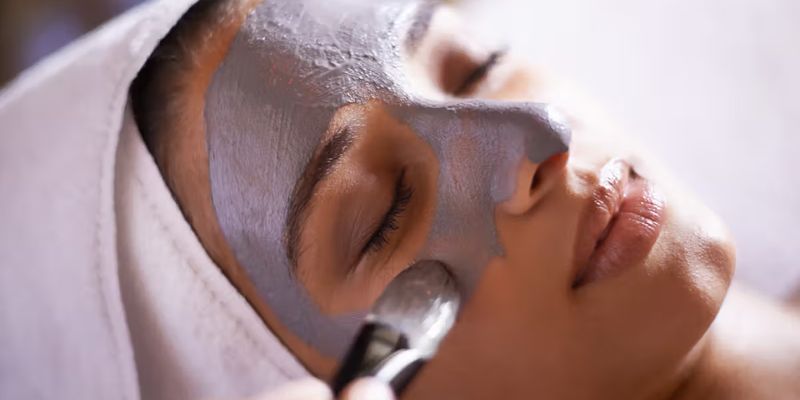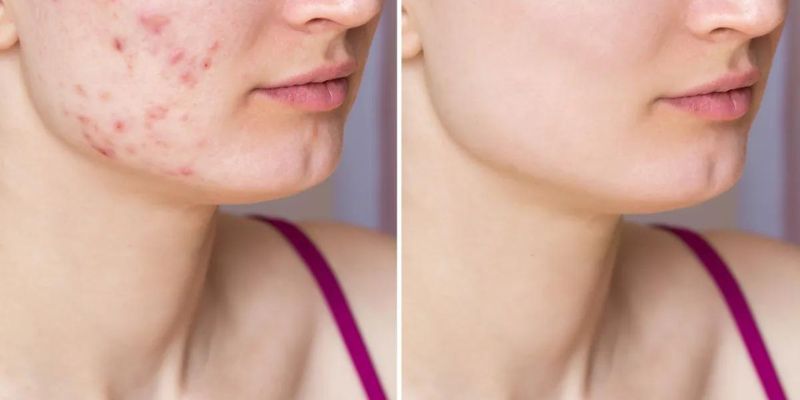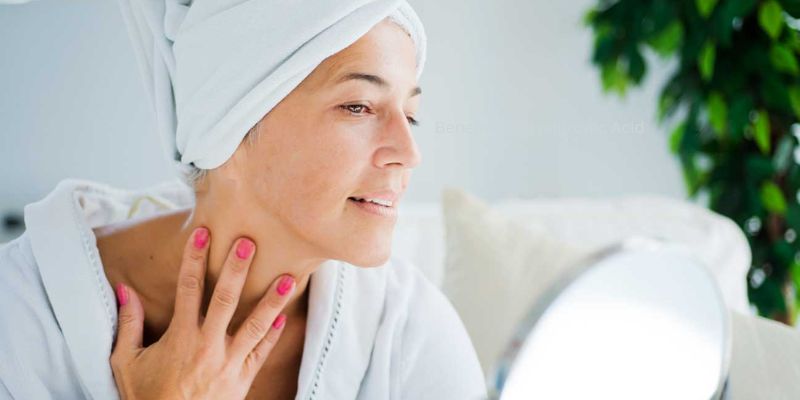Acne is a common skin condition that affects many people, regardless of age or gender. While various treatments are available to help manage acne, facials have become increasingly popular in recent years.
However, with so many different types of facials on the market, determining which facial is best for acne scars can be overwhelming and confusing. This article will discuss some key factors to consider when choosing a facial for your acne.
Best Facial for Acne and Large Pores
Chemical peels
Chemical peels apply a solution containing acids, such as glycolic or salicylic acid, to the skin. These acids help remove dead skin cells and unclog pores, which can help reduce acne and improve the skin's overall appearance.
During the treatment, the solution is applied to the face and left on for a specific amount of time, depending on the strength of the peel. The solution is then neutralized and removed from the skin. After the treatment, the skin may appear red and peel for a few days, but this is a normal part of the healing process.
Microdermabrasion
Microdermabrasion is a non-invasive procedure that involves using a handheld device to exfoliate the outer layer of the skin. The device uses tiny crystals or a diamond-tipped wand to gently remove dead skin cells, which can help unclog pores and reduce acne.
Microdermabrasion also stimulates collagen production, improving the skin's texture and tone. The procedure is usually painless and can be done in a dermatologist's office or a spa. After the treatment, the skin may be slightly red and feel somewhat sensitive, but this usually subsides within a few hours. Multiple treatments may be needed to achieve the desired results.
Laser therapy
Laser therapy is a popular facial treatment for acne that uses targeted beams of light to target bacteria and reduce inflammation. This type of treatment works by directing the laser at the affected areas of the skin, where it penetrates the layers and destroys the bacteria that cause acne.
The laser also helps to reduce inflammation by stimulating collagen production, which can help to heal the skin and reduce redness and swelling. Laser therapy is typically done in a series of sessions, and results can vary depending on the severity of the acne and the individual's skin type.
It is essential to consult with a dermatologist or skincare professional to determine if laser therapy is the right option for your specific needs.
Extraction
Extraction is another standard facial treatment for acne that involves manually removing acne lesions by a dermatologist or esthetician. This procedure is typically done using sterile tools and techniques to minimize the risk of infection.
During an extraction, the professional will use gentle pressure or a unique tool to extract the contents of the acne lesion, including oil, dead skin cells, and bacteria. It helps to unclog the pores and reduce inflammation.
While extraction can provide immediate relief and improvement in the appearance of acne, it is essential to note that it does not treat the underlying causes of acne and may need to be done regularly to maintain results. It is also necessary to follow proper aftercare instructions provided by the skin care professional to minimize the risk of scarring or further irritation.
High-frequency treatment
High-frequency treatment is a popular facial treatment for acne that uses a high-frequency device to kill bacteria and reduce inflammation. The device emits a mild electrical current that produces ozone, which has antibacterial properties.
When the device is applied to the skin, the electrical current creates a warming sensation and gentle tingling. This treatment is effective because the electrical current kills the bacteria that cause acne, reducing breakouts and preventing new ones from forming.
Additionally, the treatment helps to reduce inflammation and soothe redness, promoting faster healing of existing acne lesions. High-frequency treatment is safe and non-invasive, making it a popular choice for individuals seeking an effective and natural solution for acne.
Facial masks
Various types of facial masks are available, but those containing ingredients like salicylic acid or sulfur are particularly beneficial for treating acne. Salicylic acid is a beta-hydroxy acid that penetrates deep into the pores, exfoliating the skin and removing dead skin cells and excess oil.

It helps to unclog pores and prevent the formation of new acne lesions. On the other hand, sulfur has antibacterial properties that help kill the bacteria responsible for acne. It also helps to control oil production and reduce inflammation, leading to more precise and healthier skin.
When using facial masks for acne treatment, following the instructions carefully and using them as directed is essential. Consistency is vital, as regular use of facial masks can help improve the skin's overall condition and reduce the appearance of acne.
Choosing the Right Facial Treatment
When choosing the proper facial treatment for acne, several factors must be considered.

Consider the severity of acne.
First and foremost, you should assess the severity of your acne. If you have mild acne, you can treat it with over-the-counter products or home remedies. However, if your acne is more severe, it may be necessary to consult with a dermatologist who can recommend more intensive treatments.
Skin type
Different facial treatments are designed for specific skin types, such as oily, dry, or combination. Choosing a treatment specifically formulated for your skin type is essential to ensure the best results and minimize any potential side effects.
Allergies or sensitivities
If you have any allergies or sensitivities, it's essential to carefully read the ingredients of any facial treatment you are considering. Some ingredients may cause irritation or allergic reactions, so choosing products that are hypoallergenic or suitable for sensitive skin is vital.
Professional advice
When choosing a facial acne treatment, seeking professional advice is always a good idea. A dermatologist or esthetician can assess your skin, provide personalized recommendations, and guide you toward the most suitable treatment options.
They have the expertise and knowledge to help you navigate the many options and find a treatment that effectively addresses your acne concerns.
Conclusion
Facials can effectively manage acne, but choosing the right one for your skin type and concerns is essential. Consulting with a licensed esthetician or dermatologist can help determine which facial would work best for you. Remember, consistency is vital when seeing results from facials, so schedule regular appointments for long-term benefits.







